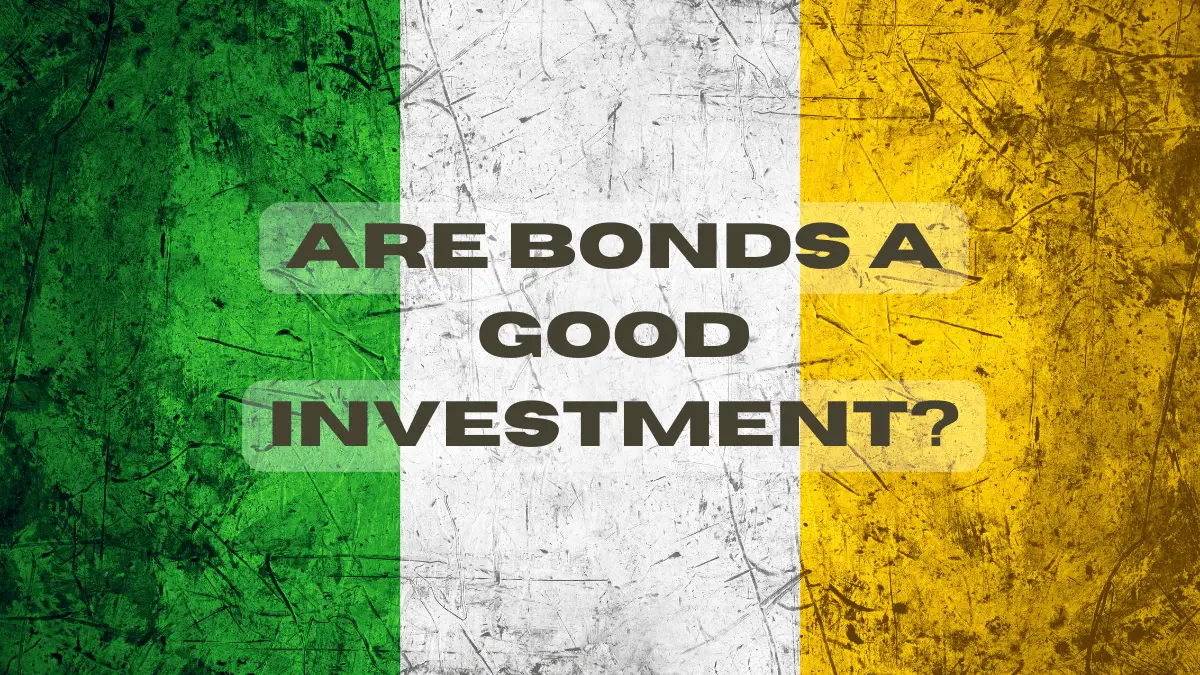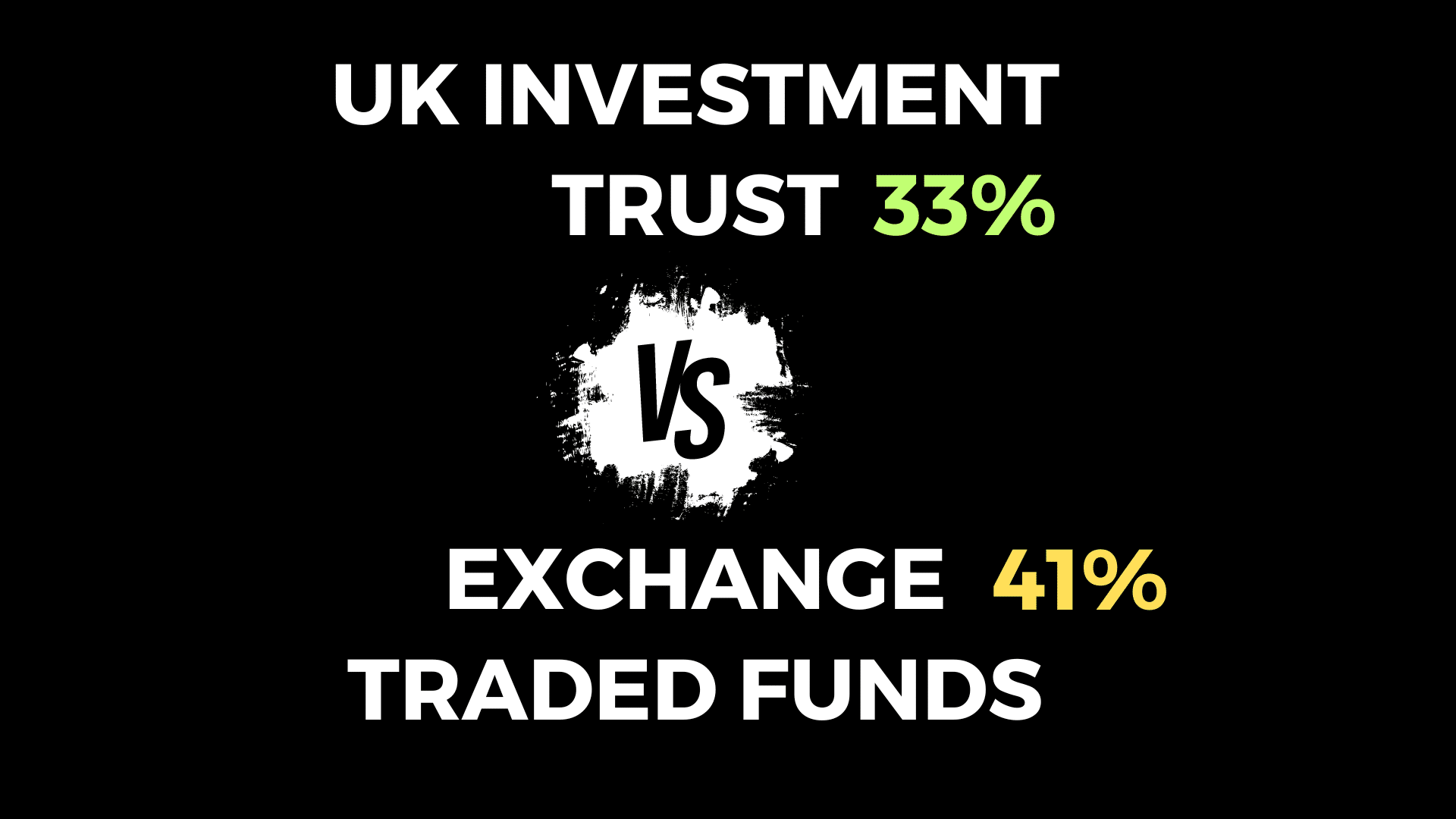One problem that Irish investors have is trying to decide how to allocate their funds between all of the different asset classes available such as stocks, crypto, precious metals, commodities, cash and bonds.
Bonds offer a less risky way to invest money that can give you a guaranteed period of fixed cash flows, but are they actually a good Investment for Irish investors?
I am assuming you know the basics of what a bond is and how they work but in future we will do a full explainer for the complete beginners. ( For now you can check out this guide prepared by Cantor Fitzgerald here).

2022 is proving to be a difficult time for investors and savers. Inflation rates in Europe are at levels that we haven’t seen in decades and this is causing the wealth of many individuals to be eroded away.
As a result of this high inflation, it is currently hard to get sufficient returns from bonds to offset the loss of buying power is causes. If inflation is 8% and you are only receiving 4% interest from a bond your money is still depreciating by 4% per annum.
That being said other asset classes have been losing significant value in the first half of 2022. You would likely have weathered the latest market downturn much better if you held a large portion of bonds in your portfolio.
The rate of return you will get on a bond will depend on the likelihood the bond issuer will default on that bond.
Government bonds typically have a very low rate of interest attached as it is very rare for a country to default on its debt.
Whereas you will get much higher interest rates on bonds issued by companies as there are much higher risks of default and the company won’t be bailed out by the government unless it’s a large bank possibly. The rates of interest on corporate bonds will depend on the credit rating of the company.
AAA Rated Corporate Bonds have had an historical average rate of 5.8% (1928-2021) which is a very good rate of return but still below the average that the S&P 500 would have achieved over the same time.
Pros and Cons of Investing in Bonds?
| PROS | CONS |
|---|---|
| Guaranteed cash flows | Lower risk, lower return |
| Far less risk than stocks | Interest taxed at a high rate of tax |
| Less volatile | Upcoming changes in interest rates will affect Bond prices |
| Can make returns on overall investment portfolio more stable | Limited choice for Irish Investors |
Many financial advisors recommend going with the 60/40 strategy which says the best mix of investments is to hold 60% of your funds in stock and 40% in bonds.
But in practice, very few retail investors follow this formula. If you were interested in investing 40% of your investment portfolio in bonds where could you start to look?
How to Invest in Bonds in Ireland?
There are limited options in Ireland when it comes to investing in Bonds.
Degiro
Degiro is one of the few brokerages that offer bonds among its product offerings to European retail investors. You will have the choice of investing in several corporate bonds and government bonds (Irish, Dutch, French, Portuguese etc).
You can earn a €50-€100 credit when you sign up for a Deigro account by checking out our sign up bonuses here.
State Savings
There are a number of products Irish residents can access on StateSavings.ie all Irish state backed bonds.
You can find a number of different products to suit your term and saving requirements. Here is a summary of what is on offer:
| PRODUCT TYPE | TOTAL RETURN | AER% | €1,000 INVESTMENT |
|---|---|---|---|
| 3 Year Savings Bond | 1% | 0.33% | = €10 |
| 4 Year National Solidarity Bond | 2% | 0.50% | = €20 |
| 5 Year Savings Certificates | 3% | 0.59% | = €30 |
| 10 Year National Solidarity Bond | 10% | 0.96% | = €100 |
| 6 Year Instalment Savings | 3.50% | 0.63% | = €35 |
| Prize Bonds | Weekly prize draw entrance | Luck based | Luck based |
| Book Based Deposit Account | N/A | 0.05% | = €0.50 |
Pension
Even if you are not investing directly in bonds, you will more than likely have some exposure to bonds, especially through your pension. As you age the percentage of your pension fund that will be invested in bonds will grow and grow until you reach retirement.
Speak to your pension provider to get an exact breakdown of how much of your pension is in stock and how much is in bonds and see does it align with your risk profile.
How are bonds taxed in Ireland?
When you are investing in Bonds in Ireland you can be faced with two types of taxes:
Income tax: any interest that you earn from holding bonds will be taxed similar to your income from your job i.e PAYE, PRSI and USC.
You will pay tax therefore at a rate equal to your marginal rate of tax. This rate will depend on how much you make from all your sources of income. If you are a high earner the marginal rate of tax can be as high as 52-55%.
Capital Gains tax: if you do not hold the bond until maturity and decide to sell it you may be liable to capital gains tax on any profit made from that sale. This can be easily calculated as the difference between the price at which you bought and sold the bond.
Capital gains will be taxed at a rate of 33%, but you are entitled to an annual exemption of €1,270 per annum. If it is the case where you have made a loss then this can be either offset against other gains in that year or carried forward into the next year.
Disclaimer: This blog post is for informational and educational purposes only and should not be construed as financial advice.







